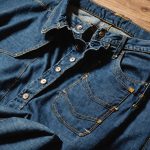Understanding Eco-Friendly Fashion
Eco-friendly fashion, also known as sustainable clothing, represents a movement advocating for environmentally and socially responsible fashion industry practices. At its core, eco-friendly fashion utilises recycled materials, reducing the environmental impact and promoting sustainability. The significance of this approach in today’s world cannot be understated given the urgent need to mitigate climate change impact by reducing waste and conserving resources used in traditional fashion production methods.
The sustainable clothing movement has grown rapidly, driven by increasing consumer awareness and demand for sustainable options. Over recent years, the commitment to eco-friendly fashion has gained momentum, making it an essential part of global sustainability efforts.
Also read : Recharge Your Body: Key Cool Down Techniques for Optimal Recovery After Intense Cardio Workouts
Key terms in this sphere include “ethical production,” which refers to manufacturing practices that ensure fair wages and safe working conditions, and the “circular economy”. The circular economy model extends the life cycle of clothing through recycling, repurposing, and refurbishing rather than linear consumption, ultimately reducing landfill waste.
These insights into eco-friendly fashion highlight the movement’s broader relevance, encouraging more individuals and companies to embrace ethical and sustainable practices. As consumers become more informed, they are better equipped to make responsible purchasing decisions that support this crucial global initiative.
In the same genre : Recharge Your Body: Key Cool Down Techniques for Optimal Recovery After Intense Cardio Workouts
Identifying Sustainable Brands
For consumers interested in ethical fashion choices, understanding how to identify sustainable brands is vital. The assessment of sustainability is often based on several criteria. These include the use of sustainable materials, ethical production practices, and the brand’s commitment to transparency. One hallmark of a genuinely sustainable brand is brand transparency—companies openly sharing their sourcing and production methods with consumers.
Certification labels such as the Global Organic Textile Standard (GOTS) and Fair Trade indicate adherence to high environmental and labor standards, aiding consumers in their search for ethically produced clothing. In addition, brand transparency can involve providing details about their supply chain and the steps they’re taking to reduce their environmental footprint.
Well-known sustainable brands such as Patagonia and Stella McCartney exemplify these practices. Patagonia is renowned for its commitment to the environment, offering repair services to extend the life of its products. Stella McCartney prioritizes using alternative materials and sustainable sources. Understanding and recognising these signs of sustainability not only supports ethical practices but also empowers consumers to make informed decisions. By choosing brands that align with these values, individuals contribute to a broader cultural shift towards ethical and sustainable fashion.
Benefits of Choosing Recycled Clothing
Choosing recycled clothing offers substantial benefits for the environment and the fashion industry. By prioritising recycled materials, the environmental impact of traditional fashion production is significantly reduced. Manufacturing clothing using recycled fibres minimizes waste in landfills and diminishes the need for new resources, contributing to a more sustainable planet.
Economically, recycled clothing reshapes the fashion industry. It drives innovation by encouraging brands to develop new processes for reusing textiles. This shift potentially reduces production costs and enhances brand reputation among eco-conscious consumers. The emphasis on recycling within fashion also opens opportunities for niche markets and innovative business models, offering consumers choices aligned with sustainable values.
For individuals, the appeal of recycled clothing extends beyond environmental consciousness. Durable by design, these garments often boast improved quality and longevity. Moreover, recycled fashion accommodates diverse styles, allowing consumers to make ethical fashion choices without compromising personal style.
Ultimately, selecting recycled clothing aids in the promotion of sustainable resources while responding to the ethical dilemmas of fast fashion. In doing so, consumers actively participate in reshaping the fashion landscape, moving towards a more conscious and economically sustainable future.
Fast Fashion: Understanding Its Impact
Fast fashion refers to mass-produced, low-cost clothing that mimics current style trends. This model enables rapid turnover but is notorious for its negative environmental and social impacts. It contributes significantly to pollution through resource-intensive production and short product life cycles, leading to sizable waste.
Socially, fast fashion often exploits labourers in underdeveloped regions, eschewing fair wages and ethical practices. Case studies, like the 2013 Rana Plaza disaster, starkly highlight these issues. This ethical dilemma positions workers in unsafe environments to meet the relentless demand for cheap apparel.
However, consumer awareness can recalibrate this narrative. As shoppers become informed about these impacts, they can pivot towards responsible consumption. Opting for sustainable brands or prioritising quality over quantity holds significant potential.
Encouragingly, businesses face rising pressure to enhance practices due to shifting consumer expectations. As purchasers, actionable steps might include demanding transparency from brands or supporting labels dedicated to ethical fashion. By becoming more conscientious, individuals can spearhead a generational transition, paving the way for a more sustainable fashion industry. Thus, recognising the stark realities of fast fashion propels change, guiding society towards safer, more equitable consumerism.
Practical Tips for Eco-Friendly Shopping
Mindful consumption is key to sustainable purchasing. Here are practical strategies for eco-friendly shopping that align with thoughtful consumerism:
Evaluate needs versus trends. Before making a purchase, consider your wardrobe’s needs. Avoid buying trendy items that don’t align with your existing collection. This reduces excessive consumption and minimizes waste.
Opt for second-hand shopping. Thrift stores and vintage shops provide unique clothing options while extending a garment’s life cycle. Participating in clothing swaps with friends is another fun way to refresh your wardrobe sustainably.
Research sustainable brands. Prioritising brands with transparent practices and sustainable sourcing helps support eco-fashion initiatives. Look for certification labels indicating adherence to high environmental and ethical standards.
Quality over quantity. Invest in high-quality pieces that promise longevity. Durable clothing reduces the frequency of replacement and contributes to less waste.
Shop consciously—prioritise thoughtful purchasing. Question the purpose and necessity behind each item you plan to buy. Encouraging a reflective approach ensures that purchases are meaningful.
By implementing these eco-friendly shopping tips, consumers can significantly influence the fashion industry’s shift towards sustainable practices. This individual responsibility fosters broader change, leading to a more eco-conscious fashion culture.
Resources for Sustainable Fashion Enthusiasts
For individuals keen on exploring eco-friendly fashion, a plethora of online resources can provide insightful guidance and inspiration. Sustainable fashion blogs are invaluable, offering perspectives from industry leaders, style tips, and the latest news on sustainable practices. Sites like “Eco Warrior Princess” and “The Good Trade” curate content tailored to those interested in ethical shopping guides.
Understanding where to purchase sustainable fashion is key. Guides for locating sustainable clothing retailers help consumers find brands that prioritise transparency and sustainability. Platforms such as “Good On You” appraise brand ethics and environmental impacts, aiding informed decisions.
Community plays a vital role in the eco-fashion movement. Community initiatives and events, like clothing swaps or local eco-fashion fairs, promote engagement and create networks of like-minded individuals. They offer opportunities for learning, collaboration, and advocacy, paving the way for broader cultural shifts. Additionally, social media platforms provide space for exchange, discussion, and organisation around sustainable fashion interests. Engaging with these communities can enrich your understanding and enhance participation in the sustainable clothing movement, fostering a collective journey towards a more responsible future.











